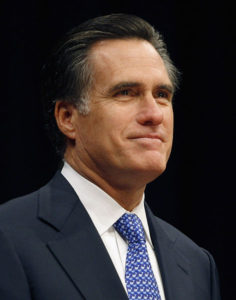Why You Should Study Reporters Before Every Interview
Whatever you think of his politics, Newt Gingrich is pretty gifted at delivering a strong media interview.
He appeared on CNN’s Anderson Cooper 360 in support of Mitt Romney recently, and Mr. Cooper had a few “tough” questions prepared. But Cooper didn’t ask a tough follow-up to at least one key question, allowing Gingrich to say only what he wanted to – and nothing more.
And that teaches you something about how to respond to difficult questions well.
Anderson Cooper: “Mitt Romney’s record, 47th in the nation overall [in job creation] when Mitt Romney left office [as Massachusetts Governor]. That’s obviously not a great number. Why, if Mitt Romney knows how to create jobs, was he not able to create more jobs as the governor of Massachusetts?”
Newt Gingrich: “Start with a point you made – they were at 4.7 percent unemployment. If we were at 4.7 percent unemployment right now, five-and-a-half Americans would be at work, but under Obama’s policies, they’re clearly unemployed. So I think it’s pretty hard for the Obama team to make the case that Romney did a worse job in Massachusetts. He clearly had a lower unemployment level.”
Gingrich’s response didn’t at all answer the essence of Cooper’s question. The essence of Cooper’s question was about Romney’s poor job creation ranking as 47th among 50 governors, which paled in comparison to his peers – not about the unemployment rate itself. But Cooper didn’t follow up, allowing Gingrich to get away with his borderline non-sequitur.
Here’s the follow-up question Cooper should have asked (and how my former boss, Ted Koppel, likely would have asked it):
“With all due respect, Mr. Gingrich, that’s not what I asked. During Governor Romney’s tenure in Massachusetts, 46 governors had a better record of job creation than he did. If he ranked only 47th out of 50 in Massachusetts, why should we have any confidence that he knows how to do a better job on a national scale?”
If a trainee answered the question the way Gingrich did during one of our media training workshops, I would have told him that it wasn’t a great answer since it failed to answer the essence of the question. But that brings us back to the title of this post, about why it’s so important to research reporters before every interview.
If you research the host and know you’ll likely be able to dodge tough questions without facing tough follow-ups, you might as well avoid the toughest part of the question and say something related to it instead. (You have to be careful not to go too far or do it too often, since a string of non sequiturs could alienate the audience.)
So research the host before your interview. If the host tends not to ask tough follow-ups, you may be able to answer tough questions a bit less directly. That may be bad for our national discourse – but it could be very good for you as a spokesperson.
Editor’s Note: I’m not accusing Anderson Cooper of never asking a probing follow-up question. He often does. But he didn’t in this case, and this exchange perfectly illustrates the larger point of this post.
Is your executive team long overdue for a media training session? Please contact us to learn more about our customized media training workshops.



